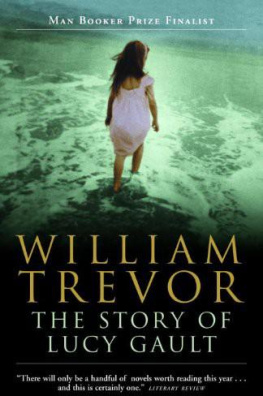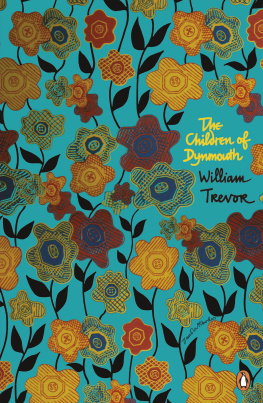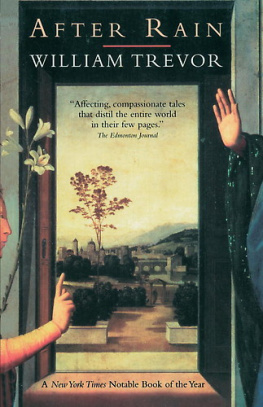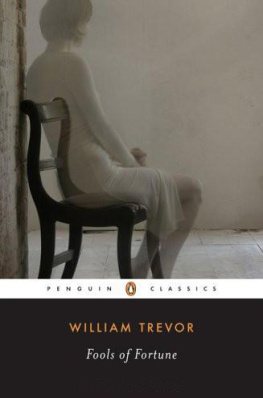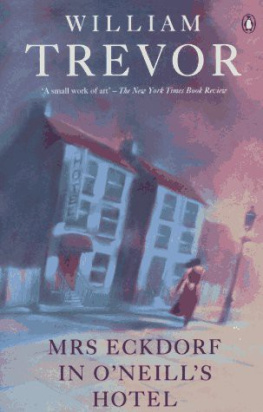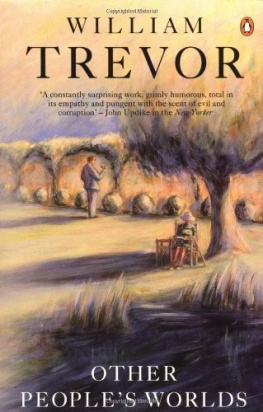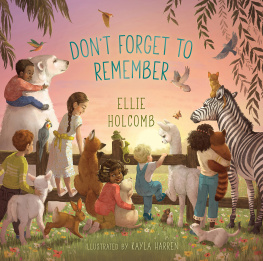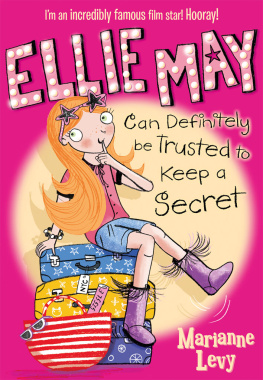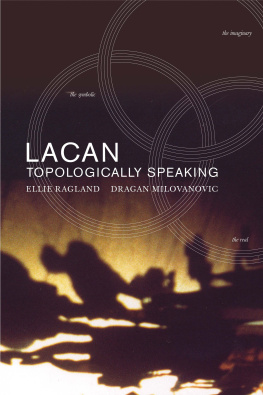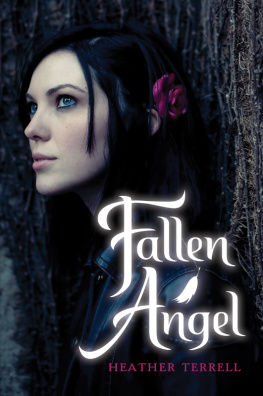Table of Contents
By the same author
NOVELS
The Old Boys
The Boarding House
The Love Department
Mrs Eckdorf in ONeills Hotel
Miss Gomez and the Brethren
Elizabeth Alone
The Children of Dynmouth
Other Peoples Worlds
Fools of Fortune
The Silence in the Garden
Felicias Journey
Death in Summer
The Story of Lucy Gault
NOVELLAS
Nights at the Alexandra
Two Lives
SHORT STORIES
The Day We Got Drunk on Cake
The Ballroom of Romance
Angels at the Ritz
Lovers of Their Time
Beyond the Pale
The News from Ireland
Family Sins
The Collected Stories
After Rain
The Hill Bachelors
A Bit on the Side
Cheating at Canasta
PLAY
Scenes from an Album
NON-FICTION
A Writers Ireland Excursions in the Real World
FOR CHILDREN
Juliets Story
For Jane
On a June evening some years after the middle of the last century Mrs Eileen Connulty passed through the town of Rathmoye: from Number 4 The Square to Magennis Street, into Hurley Lane, along Irish Street, across Cloughjordan Road to the Church of the Most Holy Redeemer. Her night was spent there.
The life that had come to an end had been one of good works and resolution, with a degree of severity in domestic and family matters. The anticipation of personal contentment, which had long ago influenced Mrs Connultys acceptance of the married state and the bearing of two children, had since failed her: she had been disappointed in her husband and in her daughter. As death approached, she had feared she would now be obliged to join her husband and prayed she would not have to. Her daughter she was glad to part from; her son - now in his fiftieth year, her pet since first he lay in her arms as an infant - Mrs Connulty had wept to leave behind.
The blinds of private houses, drawn down as the coffin went by, were released soon after it had passed. Shops that had closed opened again. Men who had uncovered their heads replaced caps or hats, children who had ceased to play in Hurley Lane were no longer constrained. The undertakers descended the steps of the church. Tomorrows Mass would bring a bishop; until the very last, Mrs Connulty would be given her due.
People at that time said the family Mrs Connulty had married into owned half of Rathmoye, an impression created by their licensed premises in Magennis Street, their coal yards in St Matthew Street, and Number 4 The Square, a lodging house established by the Connultys in 1903. During the decades that had passed since then there had been the acquisition of other properties in the town; repaired and generally put right, they brought in modest rents that, accumulating, became a sizeable total. But even so it was an exaggeration when people said that the Connultys owned half of Rathmoye.
Compact and ordinary, it was a town in a hollow that had grown up there for no reason that anyone knew or wondered about. Farmers brought in livestock on the first Monday of every month, and borrowed money from one of Rathmoyes two banks. They had their teeth drawn by the dentist who practised in the Square, from time to time consulted a solicitor there, inspected the agricultural machinery at Des Devlins on the Nenagh road, dealt with Heffernan the seed merchant, drank in one of the towns many public houses. Their wives shopped for groceries from the warehouse shelves of the Cash and Carry, or in McGoverns if they werent economizing; for shoes in Tylers; for clothes, curtain material and oilcloth in Cor-ballys drapery. There had once been employment at the mill, and at the mills electricity plant before the Shannon Scheme came; there was employment now at the creamery and the condensed-milk factory, in builders yards, in shops and public houses, at the bottled-water plant. There was a courthouse in the Square, an abandoned railway station at the end of Mill Street. There were two churches and a convent, a Christian Brothers school and a technical school. Plans for a swimming-pool were awaiting the acquisition of funds.
Nothing happened in Rathmoye, its people said, but most of them went on living there. It was the young who left - for Dublin or Cork or Limerick, for England, sometimes for America. A lot came back. That nothing happened was an exaggeration too.
The funeral Mass was on the morning of the following day, and when it was over Mrs Connultys mourners stood about outside the cemetery gates, declaring that she would never be forgotten in the town and beyond it. The women who had toiled beside her in the Church of the Most Holy Redeemer asserted that she had been an example to them all. They recalled how no task had been too menial for her to undertake, how the hours spent polishing a surfeit of brass or scraping away old candle-grease had never been begrudged. The altar flowers had not once in sixty years gone in need of fresh water; the missionary leaflets were replaced when necessary. Small repairs had been effected on cassocks and surplices and robes. Washing the chancel tiles had been a sacred duty.
While such recollections were shared, and the life that had ended further lauded, a young man in a pale tweed suit that stood out a bit on a warm morning surreptitiously photographed the scene. He had earlier cycled the seven and a half miles from where he lived, and was then held up by the funeral traffic . He had come to photograph the towns burnt-out cinema, which he had heard about in a similar small town where recently he had photographed the perilous condition of a terrace of houses wrenched from their foundations in a landslip.
Dark-haired and thin, in his early twenties, the young man was a stranger in Rathmoye. A suggestion of stylishness - in his general demeanour, in his jaunty green-and-blue-striped tie - was repudiated by the comfortable bagginess of his suit. His features had a misleading element of seriousness in their natural cast, contributing further to this impression of contradiction. His name was Florian Kilderry.
Whose funeral? he enquired in the crowd, returning to it from where he had temporarily positioned himself behind a parked car in order to take his photographs. He nodded when he was told, then asked for directions to the ruined cinema. Thanks, he said politely, his smile friendly. Thanks, he said again, and pushed his bicycle through the throng of mourners.
Neither Mrs Connultys son nor her daughter knew that the funeral attendance had been recorded in such a manner, and when they made their way, separately, back to Number 4 The Square they remained ignorant of this unusual development. The crowd began to disperse then, many to gather again in Number 4, others to return to their interrupted morning. The last to go was an old Protestant called Orpen Wren, who believed the coffin that had been interred contained the mortal remains of an elderly kitchenmaid whose death had occurred thirty-four years ago in a household he had known well. The respectful murmur of voices around him dwindled to nothing; cars drove off. Alone where he stood, Orpen Wren remained for a few moments longer before he, too, went on his way.
Cycling out of the town, Ellie wondered who the man whod been taking photographs was. The way hed asked about the old picture house you could tell he didnt know Rathmoye at all, and shed never seen him on the streets or in a shop. She wondered if he was connected with the Connultys, since it was the Connultys who owned the picture house and since it had been Mrs Connultys funeral. Shed never seen photographs taken at a funeral before, and supposed the Connultys could have employed him to do it. Or he was maybe off a newspaper, the


